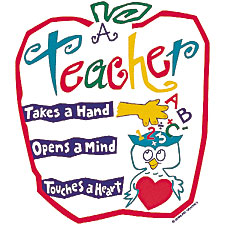CHAPTER FIVE
Becoming a Professional Teacher
“What is a teacher: I’ll tell you; it isn’t someone who teaches something, but someone who inspires the students to give of her best in order to discover what she already knows.” – Paulo Coelho, The Witch of Portobello
Ethics is concerned with distinguishing between good and evil in the world, between right and wrong human actions and between virtuous and non-virtuous characteristic of the people.
“Ethic is knowing the difference between what you have a right to do and what is right to do.” – Potter Stewart
The Code of Ethics for Professional Teachers states the principles governing the behavior and guide for the right conduct of the teachers to possess. Each teacher should be careful on his actions and words for which they are the role models of the right conduct of all the people. Teachers must keep in mind all their limitations and maintain the right conduct and good moral values wherever they are.
“Teacher affect eternity; no one can tell where their influence stops.” – Henry Brooks Adams
Teaching is a noble profession because it is a call from God, written on human hearts. Teacher is the source of knowledge, learning and guidance for human beings; enlightening and broadens the dark sides of learner’s heart and mind. Teachers leads the learners to the road of progress and success in life. Teaching is the profession which shows the learners the path which lead them to a great future.
“Teaching is a noble profession that shapes the character, caliber and future of an individual. If the people remember you as a good teacher, that will be your the biggest honor” – A. P. J. Abdul Kalam
Teachers have a lots of duties and responsibilities not only for students but also to the school, parents, community, state, their profession and other personnel of the school.
Here are some of the duties and responsibilities of the teachers:
Teacher is under obligation to transmit to learners such heritage as well as to elevate national morality, promote national pride, cultivate love of country, instill allegiance to the Constitution, respect all duly constituted authorities and promote obedience in the law of the state.
Teacher provide leadership and initiative to actively participate in community movements for moral, social, educational, economic and civic betterment.
Teacher actively help insure that teaching is the noblest profession and manifest genuine enthusiasm and pride in teaching as a noble teaching.
A teacher recognize the interest and welfare of the learners are his first and foremost concern, and handle each learner justly and impartially.
A teacher hear parent’s complain with sympathy and understanding and discourage unfair criticism.
“Teaching should be such that what is offered is perceived as a valuable gift and not as a hard duty.” – Albert Einstein
Teachers have the very important role and responsibility of shaping the lives of every learners. They are the one who molds the mind of every student to think creatively and critically. Teaching as a profession enabled students to take their desired profession to be a doctor, nurse, engineer, scientist, agriculturist, lawyer and others.
“Teaching is the one profession that creates all other professions.” – Author Unknown










 On Becoming A Global Teacher
On Becoming A Global Teacher

